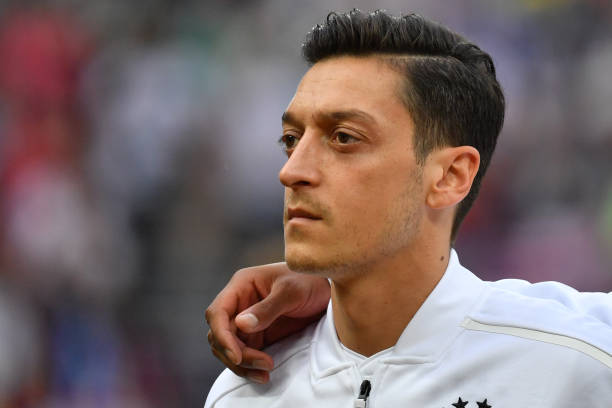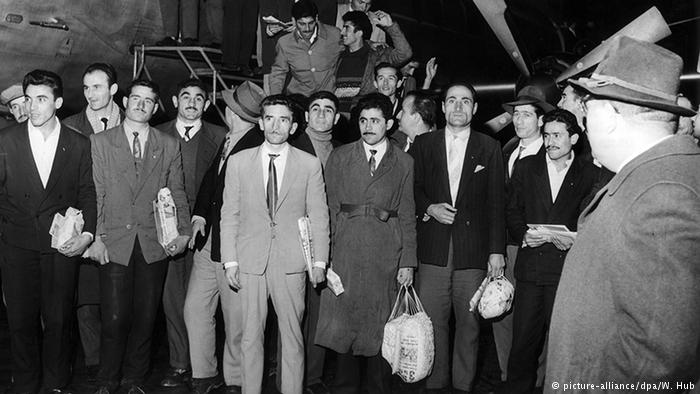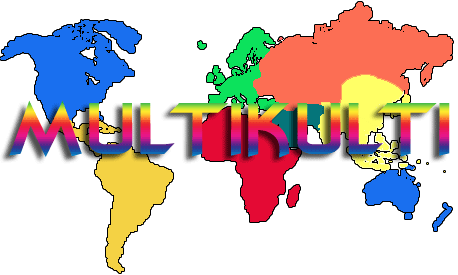Mesut Ozil continues to divide opinion, be it about his football, personality or nationality. So what is the problem? Set aside 45-minutes for this deep-dive into one of football’s greatest mysteries…
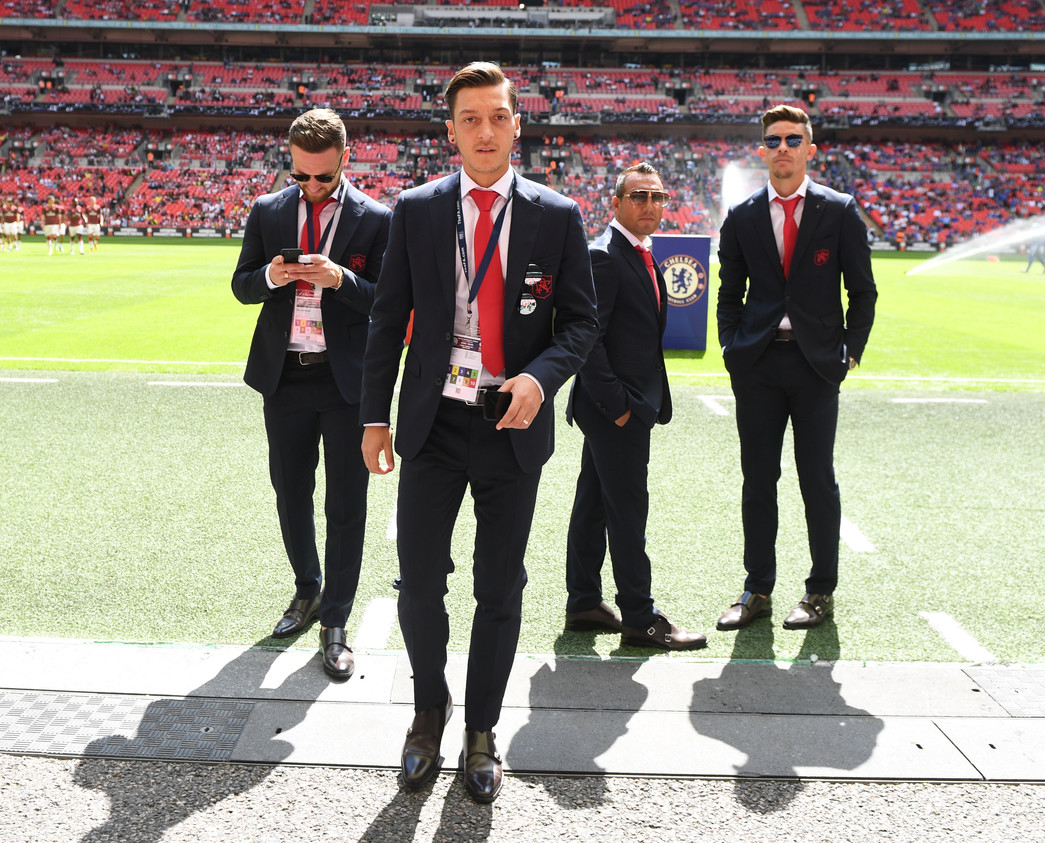
Anyone with an outward eye didn’t need the vilification and subsequent international retirement of our mercurial numero dix to remind them of how polarised opinions have changed our political landscape across the western world.
The main impact of the financial crisis of the late 2000s, widescale economic migration and the free-market crushing of any liberalism with a remotely socialist bent has been to shift our global barometer right.
The advent of social media and the tyranny it exerts over those more pre-occupied with maintaining their position than using it for virtuous means has given disproportionate power to those able to co-ordinate loud shouting in terms of influencing appointments and policy.
The socially liberal centrists have been taken by surprise by the re-emergence of arguments that appeared long since won and have not known how to counter arguments from political extremes that seem to them pure logical and moral fallacies.
In a world where an unwillingness of slavishly free-market governments to curb corporate greed has failed to ensure that economic growth is to the benefit of all, and hundreds of millions see their living costs spiral while earnings remain static, people have, as they have done throughout history, chosen to look beyond the comfortable familiarities for answers.
In Britain, this has seen the rise of previously fringe figures like Farage and Corbyn from their respective political wildernesses, while those in the centre thrash around in vain attempts to understand. In the US, the last Presidential election saw bitter divides along partisan lines, and again, the ‘disenfranchised’ white working class split among more radical approaches, largely lurching to the right. The fact that Le Pen is even a political figure in France says quite enough about the issues there. And this is being reflected all over the Western world.
Why am I talking about this in a football blog?
Because these changes have all occurred since Mesut Ozil broke into the Bundesliga and since Klinsmann’s young German side caught the imagination in 2006 and that of Joachim Low excelled and excited prior to and at the 2010 World Cup.
At that point in time, the political reality we live in now, seemed implausible. In Britain, anti-EU sentiment was mostly confined to the back benches of the Conservative party and small towns without any experience of immigration. In the USA, the George W. Bush administration was limping to its conclusion, hamstrung by its war in Iraq. France was still basking in the after-glow if successes in 1998 and 2002 which were so dependent on post-colonial immigration, and the only fascist Le Pen of significance was Jean-Marie approaching his 80s. At the same time Germany was embracing its multi-heritage sportsmen and had recently hosted a successful and all-embracing World Cup.
Only the most prescient could have predicted the current state of affairs taking hold so quickly.
In the late 2000s, it would seem implausible to imagine a world cup winning footballer, a global superstar and perennial fixture in the national team quitting international football at the age of 29 due to both perceived and confirmed racial discrimination. A man who was eligible to play for the country of his heritage, and was actively pursued by them, but chose instead to represent the land of his birth, racking up 23 goals and 40 assists in 92 caps.
Even now, when one takes a step back from it, it is a seismic event in footballing terms. This isn’t an aging player looking to protect their legs for the benefit of their club career. This isn’t a fringe player attempting to hide his pique at non-selection behind a smokescreen of excuses. This isn’t a disruptive figure with a history of controversy. This isn’t even another example of player representing a nation with limited chance of success or major administrative problems. This is one of the best and most successful players ever produced by one of the strongest football nations in the world, quitting at the peak of his powers because he feels that his dual heritage has made him a victim of racial discrimination from his own fans, his football federation’s senior management, and the same media that made him German player of the year five times in the last seven years.
Before going any further, it is important to contextualise the broader situation.
In the 1960s, Hundreds of thousands of Turks came to Germany, invited by the state to help it tackle a shortage of labour as “guest workers”, but little attempt was made to help them learn German and integrate.
The broader issues are well covered in this 2010 piece in The Guardian, when Ozil was still being held up as a poster boy for German diversity. Even back then the final paragraphs were prescient:
“Germans still haven’t come to terms with the fact that they’re now an immigrant country,” said Barbara John, a former integration commissioner for the Christian Democrats.
“It’s a chalice out of which they know they have to drink, but they’d do anything not to have to do so.
“But until they finally understand that the foreigners are not just guests who are going to go home one day, nothing will change.”
Among those migrants were Ozil’s grandparents, who in 1967 brought with them their two your old son, Mustafa, Mesut’s father (and ex-agent). In an area heavily populated by Turkish migrants, work was plentiful, but following factory closures and overseas outsourcing, it is now typified by ‘boarded-up shops, derelict apartment blocks, unimaginative graffiti and the popular football “ape-cages” dotted around the residential areas.’ When Ozil was born, the industrial decline was in full swing, and the unemployment rate among migrants was up to 70%, with the rest often shuffling from one low paid job to another, and with social mobility almost non-existent.
A survey by the WZB Berlin Social Science Center in June showed people of Turkish descent, like other groups with migrant backgrounds, suffered discrimination when they applied for jobs. The same applies in further or higher education places. Discrimination against Turkish-German dual nationals is deeply ingrained.
https://www.youtube.com/watch?v=qeoHwaVV29o
In Ozil’s childhood days in Gelsenkirchen, a series of local clubs refused to let him join. His face — and first name — didn’t fit in. However, his school teams allowed him to play and develop, and being able to see Schalke’s Veltins-Arena from his classroom window, kept his dream in sight. Remembered as ‘small, quiet and friendly’, some teachers speculating that he was autistic because of his introverted nature and almost obsessive focus on football. His customary shyness disappeared on the pitch. Even that brought its issues:
“I remember once we won a game 12 goals to zero. Mesut scored 10”, said school club coach Ralf Maraun. “The other team’s coach took me aside and said, “Next time, please leave the migrant kid at home”.
His talent brought him to the attention of the Turkish FA who are aggressive in locating players with Turkish descent and getting them to play for the Turkish national team. This happens from an early age, hence half the Turkish U16–U17-U18-U19 team was born and raised in Germany. He chose to reject them in favour of Die Mannschaft.
To do so, strict German laws on dual nationality forced Özil, as a 17-year-old, to give up his Turkish passport. At the Turkish consulate with his dad, he recalls, the official “kept lambasting us with outrageous insinuations. For example, he ticked us off for not having ‘an ounce of pride’ and for not liking Turkey. Anybody leaving the Turkish community was a traitor. What nonsense!”
Having been forced to endure that to play for Germany, Ozil was met with hostility by a number of Turks and Turkish-Germans, who saw him as rejecting the nation, with him being booed by Turkish fans in Berlin during an International Friendly.
Dual nationals the world over often find themselves in a tug-of-love between their “home” nation and their “country of origin”, identifying with both and expected to conform to only one by each.
For Ozil, it has been particularly difficult. Both Germany and Turkey are similar in having persistent ideas of “race” and “blood” defining the nation, ideas being re-ignited by nationalists in both countries, not least by the Turkish President at the heart of this situation. “Assimilation? No. I have said this before and I’m saying it again – we don’t compromise our language, religion and culture,” he told an election rally in Cologne in 2014. Such words in turn fuel a far-right narrative in Europe that immigrants, even second and third generation, are insufficiently loyal.
It doesn’t help that Germany has been increasingly rejecting its ‘multi-kulti’ ideal. While Angela Merkel was happy to be posing for photos with Ozil for PR and attempting to present him as a shining example of immigration (he was given an award in 2010 for successfully representing German integration), she has never sought to challenge her party’s sceptical view of multiculturalism in her 18 years of leadership of the CDU. Despite staunchly defending open borders, Merkel has said that Germany’s “multi-kulti” project had “utterly failed”, and that “multiculturalism leads to parallel societies, and therefore multiculturalism remains a grand delusion”.
If the centrist German Chancellor isn’t willing to defend the inherent status of dual nationals, in a country where 30% of the younger generation is of immigrant origin, is it any surprise that tensions are high when anti-Turkish, anti-Muslim, xenophobic and racist sentiments are on the rise.
The World Cup, where several European national teams have reflected their society’s multiculturalism, also highlighted how the debate about identity fuels increasingly stronger anti-migration and anti-Islam populist parties across the continent.
While France’s win was celebrated partly because of the players’ mixed origin, it also enraged politicians such as Italy’s interior minister Matteo Salvini, who – according to media reports – left the Moscow stadium early because of his tense relationship with France’s president Emmanuel Macron over migration.
Despite this backdrop, many, of course, will seek to downplay Ozil’s statement and stepping away from the national team as over-reaction from someone they perceive to be a sensitive soul due to his body language on the pitch. This of course doesn’t stand up to any scrutiny when one analyses his career. One doesn’t thrive at Real Madrid, get the love of Jose Mourinho, be a key player in a winning a world cup after prior near misses or live in multiple countries, all while under intense scrutiny, if one doesn’t have internal strength. Equally, were he so weak, he wouldn’t have issued one of the most extraordinary statements ever given by a footballer: An emotion and personal exploration of politics, race and identity, in which fans, sponsors, the media and the peak of the German Federation were all responded to.
Others will equally suggest that this is a situation of his own creation, as he allowed himself to be photographed with Turkish President and all round complete bastard Recep Teyyip Erdoğan. Erdoğan has given freedom of expression short shrift and suppressed (to put it kindly) political opponents and dissidents in his quest for power and represents much of what modern Germany and most western democracies claim to, and usually do stand against.
While one can accuse Ozil and Ikay Gündoğan of naivety for allowing themselves to be used as political capital by a man clearly leading an unofficial dictatorship, how justified are the vast swathes of criticism they have received?
https://www.youtube.com/watch?v=gNHXRnJOx9I
While footballers are undoubtedly role models, they seldom venture into the political sphere during their playing careers. Many barely know of any political figures bar a few Presidents and Prime Ministers, and few will be particularly pre-occupied with policies. Equally, even if some are politicised creatures, whenever any of them attempt to express an opinion on politics more nuanced than ‘obviously bad thing is bad’ or ‘good things are good’, they are usually told in no uncertain terms to ‘butt out’.
For the purposes of the discussion, let’s assume that Ozil is an unusually politically motivated creature, and agrees with the prevailing German view of vocal opposition to the Turkish President. Does this mean that at a charity event at Ozil’s new hometown in London, one where Gündoğan and Everton’s Cenk Tosun also found themselves pictured with Erdoğan, he should refuse to have his photo taken with the elected (no matter how fixed the elections are, the repressions of his regime or his reprisals following the attempted coup d’état) leader of Turkey? Should he refuse despite his grandparents, much of his extended family and his girlfriend all being Turkish? Would this be possible without potential repercussions? And would it be appropriate considering the two had met at numerous previous events around the globe over the years?
None of us have any idea about Ozil’s politics bar that he is in obviously pro-immigration and racial integration. It is possible that he agrees with the Turkish President’s policies. It’s equally possible that he despises many of them. It’s also entirely possible that he just doesn’t know or care and is just happy and proud to talk about football to someone so important. It was neither first time he’d met Erdogan at such an event nor the first time he had posed with him for a photograph or two. It was, however, the first time just before a domestic election and against a backdrop of increasingly hostile relations between Turkey and Germany over recent years.
For sure, the optics in Germany were hardly going to be great, particularly after Gündoğan shared the image on social media with the words ‘My President’. Ozil probably wasn’t expecting the photo to be used in the Turkish elections, and probably has no recourse for complaint against a de facto dictator abusing his image rights. If, as he has said before, he aspires to one day play for Fenerbahce, or if he wants to spend time in Turkey with his girlfriend, he probably is reluctant to pick fights with the man trying to keep the country in an iron grip. Turkish sports stars who have criticised Erdogan, such as former star striker Hakan Suker or NBA player Enes Kanter, have faced severe repercussions for themselves and their families. Dictators, official or otherwise, tend not to hold back in punishing high profile snubs.
Sadly, for Ozil these photos were always going to catch the attention of the German media, and the subsequent ire of many commentators. The ‘inevitable’ assumption was that they endorsed Erdogan, that they were making a political statement by appearing publicly alongside him. Given that Erdoğan was in London to visit Theresa May and the Queen, neither likely to be championing the current Turkish regime, Ozil probably didn’t anticipate that assumption being made. As observed in the Guardian this week “it seemed to be acceptable for the monarch and her prime minister to have their photograph taken with him on his visit to London. But not a footballer who was born to Turkish parents and has lived in Britain for the past five years.”
Accordingly, there were demands in the media and within the DFB for Ozil to come out with some sort of public statement of condemnation or repudiation – or at the very least admission of error. There are a multitude of reasons why he might not wish to do so, not least that bar a well-manicured social media presence, he is largely a private figure, and was probably hoping it would blow over.
Instead, this is the point at which things started to get really ugly.
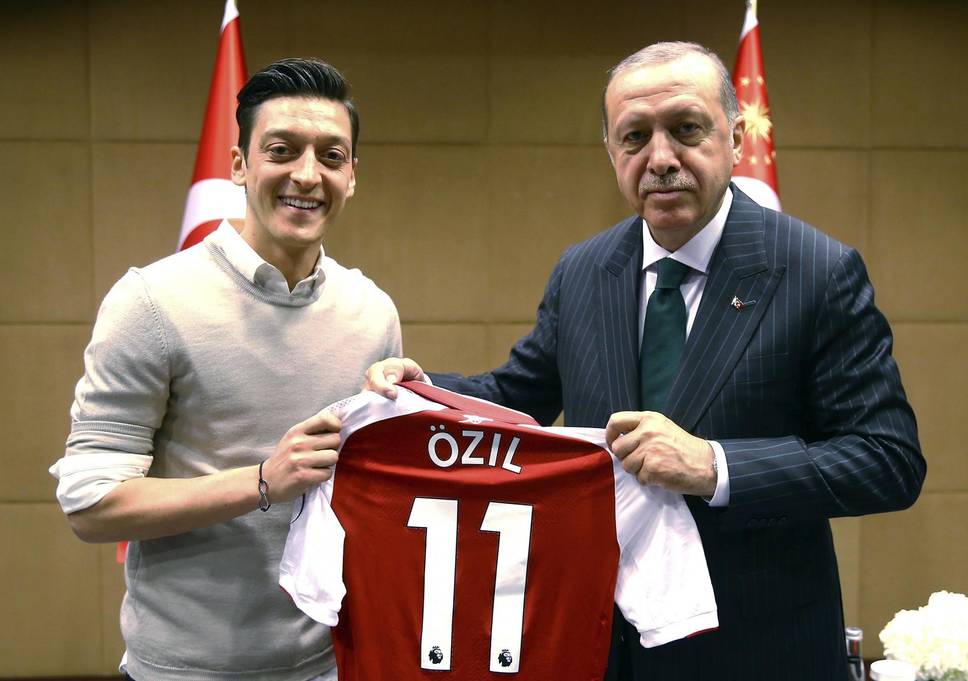
Despite the player’s wishes for this not to become a political matter, it became precisely that, as some saw it as an opportunity to pursue their own agendas.
Before the World Cup had even started, right-wing popularists around Europe were trying to use the tournament as political capital for their and immigration views. Even as the tournament developed, they were willing to adapt their arguments to suit their politics. As most of the world were enjoying the incredible run of the Croatian team, freed from some of the shackles of domestic football corruption, others were trying to use it as vindication. The Croatian team’s homogeneity was taken advantage of by politicians who oppose migration and boast about a homogenous, ‘Christian’ culture in Europe.
“The World Cup finals could be an important message for the future of Europe as an immigrant country plays a Christian country proud of its national identity. That’s why go Croatia!” a Hungarian MP, Istvan Hollik from a Christian democratic party aligned with premier Viktor Orban’s ruling Fidesz posted on Facebook before the final.
Back in Germany, even before the tournament began, a number of ex-players waded into the debate, and seldom to be supportive to Ozil. Ex-Bayern man (you’ll see a theme here) Mario Basler waded in just days before the tournament:
“Ozil is overrated. Even if he plays another 100 internationals. To me, he’s a follower.
If they (Gündoğan and Ozil) are booed in the first World Cup match of the German team, Jogi Low must respond. He should replace and not let them play, otherwise he’s putting the major honour in jeopardy. “
Likewise, the ever humble, Lothar Matthaus, now working for Bayern as well as the DFB, said that Ozil did “not feel comfortable in the Germany shirt…it’s almost as if he doesn’t even want to play.”
Even at this stage, Ozil and Gündoğan were being blamed for a failure that hadn’t happened yet.
In a limited attempt to intervene, German chancellor Angela Merkel said the pair “belong to this national team.” Gündoğan soon after released a Facebook statement, pledging allegiance to “German values” but was nevertheless booed mercilessly in the pre-World Cup friendly vs. Saudi Arabia in Leverkusen. He broke down in tears in the changing room and at the World Cup played with marked inhibition as a substitute vs. Sweden.
Ozil preferred to keep his own counsel. Germany manager Joachim Low wanted him to release a similar statement to Gündoğan, but he refused. An offer from Bild to explain himself in an interview was also turned down. Apparently, Ozil reacted badly to the pressure put on him and withdrew further into his shell.
A pressure which only intensified after defeat to an excellent Mexico side, and exploded following the terminal defeat to already eliminated South Korea.
With Germany’s disappointing performances and embarrassing group stages exit, supporters of the reigning world champions understandably looked for reasons. And many looked for someone to blame, particularly those wishing to score points elsewhere.
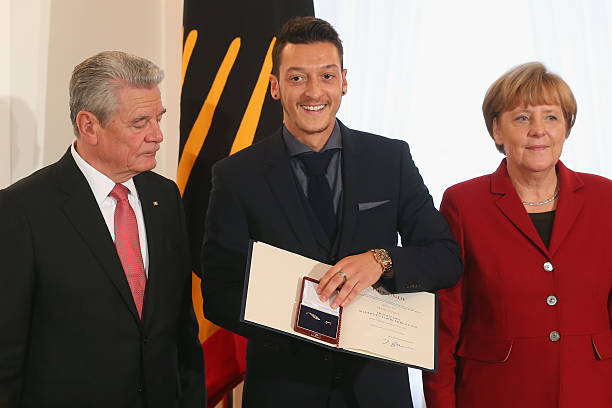
Across Europe, right-wing, populist politicians’ voices are growing ever louder, and Germany is far from the exception. In an almost sick parody of the last century, it became safest to blame the ‘other’, the non-Germanic, for the sudden collapse of Teutonic dominance. Criticism alighted upon Mesut Ozil.
Sure, the team’s primary playmaker had not been at his best. After a second half of the season struggling for form and fitness, his play was characterised by an uncharacteristic uncertainty and his body language, as it so often does, betrayed all too clearly a sense of discomfort and frustration.
To blame one player (particularly one who created so many chances for his colleagues) for what was so obviously a collective and systemic failure, would already be a clearly unfair approach, particularly as Germany were as poor in the match he was dropped for. Looking at the performances of others in the squad, particularly the usual mass of Bayern Munich players, there was plenty of criticism to go around.
However, he wasn’t being blamed for not being the match impacting force of previous tournaments.
Somehow, it was his having his photograph taken twice in May with a political figure much criticised in Germany that had de-railed the whole national team and destroyed the World Cup defence. Quite apart from the fact that this really would reflect badly on the head coach and the rest of the squad, for the number one ranked team in the world to collapse because of some bad press around two of their squad is a ridiculous assertion from any perspective.
This, sadly, was only the pathway to a more sinister criticism. It became about his background: the Gelsenkirchen-born grandson of Turkish immigrants. This was amplified by the fact that before one of the matches he had failed to sing the German national anthem (perhaps his introvert nature, or maybe the discomfort of being racially abused by his own fans?).
The far-right Alternative für Deutschland (AfD) wasted little time in accusing him. Joern Koenig, their spokesman on sport, said after the defeat to Mexico: “Team spirit isn’t working with Ozil and Gündoğan in the German team because whoever only takes part half-heartedly can’t muster the necessary fighting spirit.
“Joachim Low should cut the cord and send both of them home. There are national players who are proud of our country and Ozil and Gündoğan should free up two spots on the national team for players who don’t pay more homage to the Turkish president than they do to the German homeland.”
“Without Ozil we would have won!” the party’s lawmaker Jens Maier added on Twitter, before asking: “Are you satisfied, my president?”, a reference to Angela Merkel’s welcoming stance on refugees. Alongside this, a representative of the player told ESPN that more than 200 abusive emails have chimed with those discriminatory sentiments.
Even Public figures, with a shamelessness unthinkable a few years ago added to the abuse, with the head of the German Theatre in Munich, Werner Steer, saying Özil should “p*** off back to Anatolia”.
In the media, the ever classy Bild simply said “Enough is Enough”. TV channel Pro7 demanded the player’s resignation from the national team in a tweet. (They later apologised and deleted the post.). Die Welt, Bild and FAZ all illustrated articles about Germany’s inglorious exit with photos of the playmaker. Sport1 gave him the worst possible mark (6), and Sat1 commentator Claus Strunz bemoaned that Ozil had “only played backwards” in Kazan.
Analysis outside Germany didn’t remotely reflect this view. On whoscored.com, Ozil was the fourth highest ranked member of the German squad in terms of performance ratings. He created more chances in Germany’s final game than any other player in any single match and played more key passes than any other player in the group stages.
“The scapegoat has been found,” Frankfurter Rundschau wrote about the wholly disproportional criticism.
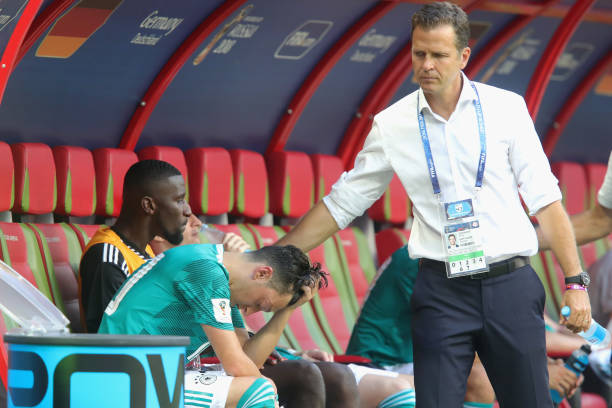
Had this criticism been limited to the right-wing and sensationalist media and more unsavoury political figures, Ozil probably would have recovered from the disappointments and insults fairly quickly, in the same way I wouldn’t lose much sleep about the likes of Tommy Robinson getting all het up about my mixed heritage.
That was not the case. Ozil received racially motivated abuse from some of his national team’s own fans, which increased throughout the tournament as the squad struggled, and worse was waiting from those he should have felt the greatest support from.
The DFB (German FA) President Reinhard Grindel (who has previously described multiculturalism as a myth) had wanted the Arsenal man out of the squad but was persuaded to back Löw’s decision to take Özil to the World Cup.
Before the tournament Löw had the support of Frank-Walter Steinmaier, the president of the German federal republic. After the initial row Steinmaier had met Özil, listened sympathetically to his story, and issued – apparently to Grindel’s dismay – a joint statement with the player.
With Germany out following a disappointing showing, Grindel took his revenge by publicly throwing Ozil to the wolves, conveniently deciding Özil needed to answer for his actions. This was at the very moment his organisation was desperately searching for someone to blame for their limp World Cup surrender, and people were asking questions about the DFB’s preparations. Bayern Munich chairman (and losing World Cup finalist) Karl-Heinz Rummenigge had sharply criticized the DFB over Germany’s early exit from the World Cup, calling them ‘amateurs’.
“Many fans were disappointed because they had questions for [Özil] and expected an answer,” Grindel told German football magazine kicker earlier this month. “For me it is absolutely clear that, once he returns from holiday, and with his own interests in mind, he should make his views heard.”
Apparently when they met privately, before the World Cup, Ozil did attempt to make his views heard, as he reported in his statement; “Whilst I attempted to explain my heritage, ancestry and therefore reasoning behind the photo, he was far more interested in speaking about his own political views and belittling my opinion.”
To contextualise this disagreement, Grindel has previously portrayed immigrant children as lazy in the Bundestag (2013), has complained about “Islamised Spaces” in Germany’s cities, and claimed that the “behaviour of foreigners is leading to the lack of freedom”. Perhaps a meeting of minds on this issue was always unlikely.
The DFB’s self-protective sacrifice of Ozil didn’t stop with their President. Team Business Manager and former striker Oliver Bierhoff made even more damaging comments.“ We have never forced players of the German national squad to do something, but always tried to convince them of a cause,” he said, in reference to their attempts to get Özil to apologise. “We did not succeed with Mesut. In that respect, considerations should have been made about whether to leave out Özil from a sporting point of view.”
This is a massive change in stance from what Bierhoff said before the tournament; “He made a mistake. But above all, the intention counts for us. He was not vicious, not politically driven, but naive, thoughtless.”
There is nothing in either set of comments that directly attack the player. However, if a 29-year-old footballer is expected to understand the potential usages and repercussions of two photos at a charity event, surely an experienced politician in Grindel and a 50-year-old team manager have some awareness of the impact of their words given the wider political discussion, the soul searching in the football community and the comments floating around Ozil at that time. The playmaker had been called a “Turkish shit” by his own fans and “goat fucker” by Bernd Hozhauer, a German politician.
Once again Rummenigge commented with a good sense rare in the whole affair; “It obviously was not handled well, but to now portray Mesut Özil as the sole scapegoat? Sorry, I think that’s excessive.”
The damage however had been done, and Ozil made his decision to turn his back on his national team; a team, he felt, that had already turned its back on him. He not only saw his very identity held up as a contributing factor to the worst World Cup in living memory for Germany, but he also saw his very German-ness questioned.
“In the eyes of Grindel and his supporters, I am German when we win, but I am an immigrant when we lose,” Ozil wrote.
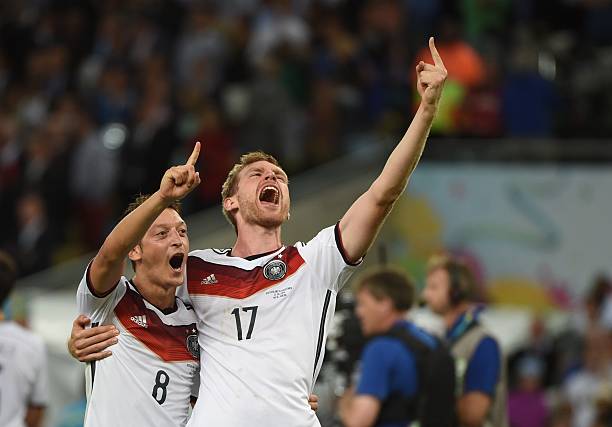
What has been even more concerning is how few have publicly supported the playmaker. Immediately after the announcement his Arsenal teammate Hector Bellerin backed him up, “Surreal that someone who has done so much for his country on and off the pitch has been treated with such disrespect,”
From the German national team, pretty much only other players of mixed heritage have commented to date. Jerome Boateng had been supportive as the situation unfolded: “Everyone has picked out Mesut Ozil, but that’s not possible, Mesut is a human,” said. “He’s an artist on the ball, not a fighter in the defence like me, so maybe he comes across badly. But that doesn’t mean he doesn’t want to win or he does it on purpose.”
“It was a difficult situation for him at the end.”
On Sunday Boateng reacted to Ozil’s decision with a tweet showing a photograph of the two players together after winning the World Cup, saying it was a ‘pleasure’ to be Ozil’s teammate, referring to him as ‘abi’ which is Turkish for older brother.
Antonio Rüdiger responded to the announcement by tweeting: “Thanks to one of the best footballers I’ve ever played with. The real ones will always remember the joy you brought us during your @DFB_Team career” and unsurprisingly social media king Lukas Podolski posted twice, making some basic points others have chosen to forget: “A tournament and historic night we will never forget. World Champions forever! We won many times together, and sometimes we didn’t, that’s football but with you it was always magical having you as a teammate for club and country”
The only exception to exclusively multi-ethnic support was Ozil’s friend and devotee, Julian Draxler, who wrote on Instagram “Thank you for everything you‘ve done for German football. You can be proud of your many achievements”.
Beyond that Ozil has been largely left to fight his own corner, with barely a handful of international teammates commenting, and with others, notably Bayern Munich president Uli Hoeness, dismissing his comments outright.
“For me Mesut Özil has been a poor excuse of a footballer for years…He has been playing s**t for ages,” said Hoeness as part of an extraordinary tirade. “I am glad that this nightmare is now over.” Worse followed: “He last won a tackle before the 2014 World Cup. For the new beginning, it’s super that he’s now finally quitting. Already at the World Cup2014, he was no more than a fellow traveller and not far from being cut. The others [on the team] pulled him through the final. Now he’s hidden himself nicely behind the Erdogan story. He’s played like crap for years and now Grindel or Bierhoff are supposed to be to blame…You have to go back to what it is: sport. And from a sporting point of view, Ozil has no place in the national team for years.”
The generous might suggest Hoeness has completely misunderstood the issue (quite apart from the stats not supporting his words), but that would be extremely generous. At best, he’s suggesting that Ozil’s statements are merely an attempt to cover himself being dropped for poor form (despite his excellent form in qualifying), and at worst he’s deliberately stirring up a very sensitive situation.
Ozil’s agent, Dr Ergut Sogut, responded rather pointedly in his own inimitable style:
“He is trying to divert attention away from the real issue, the issue of racism and discrimination in Germany, which is resurging once again within everyday German society.
“As Mesut said in his statement, he accepts reasonable and fair criticism of his football, and deals with that as part of the job…. Something he [Hoeness] does know about though, is the 28.5 million euros in tax he evaded, when he was forced to resign from his role at Bayern Munich and sentenced to prison for his criminal behaviour.
“What kind of person does this make him? When he committed this illegal and criminal act, he stole money away from the German society for his own selfish reasons.”
He also neatly picked up on Hoeness’ likely intentions.
“…he has purposefully ignored this wider point [about discrimination]. And has done so on purpose. Hoeness knows what he is doing. Issuing crazy comments about Mesut’s football, he thinks, it will create a big reaction and will cover the real issue.
“The issue he and many in Germany are scared to confront, an issue he would prefer to sweep under the carpet because he can’t face the uncomfortable truth. “
Many in Germany are as reluctant as Hoeness for this debate to continue, many out of a desire to protect immigrant communities from further hostility. Others, like Lothar Matthaus, want to pretend that only sporting considerations apply.
“I think his time to play in the national team is over. Not because of some picture, of a political decision. It doesn’t matter, I don’t care. I see the football player Mesut Ozil and he didn’t perform like before.”
When asked if the German federation has a racism problem, he dismissed the issue;
“No, absolutely no,” he said. “We have so many influences from outside Germany and we say, ‘Welcome all the world to Germany.’ And Mesut was playing the last 10 years in the national team, Sami Khedira was playing a long time in the national team, [Jerome] Boateng, [Serge] Gnabry — so many influences from outside.”
“I think we don’t have a problem. He has a problem to find now an answer of this ‘retired from the national team.”
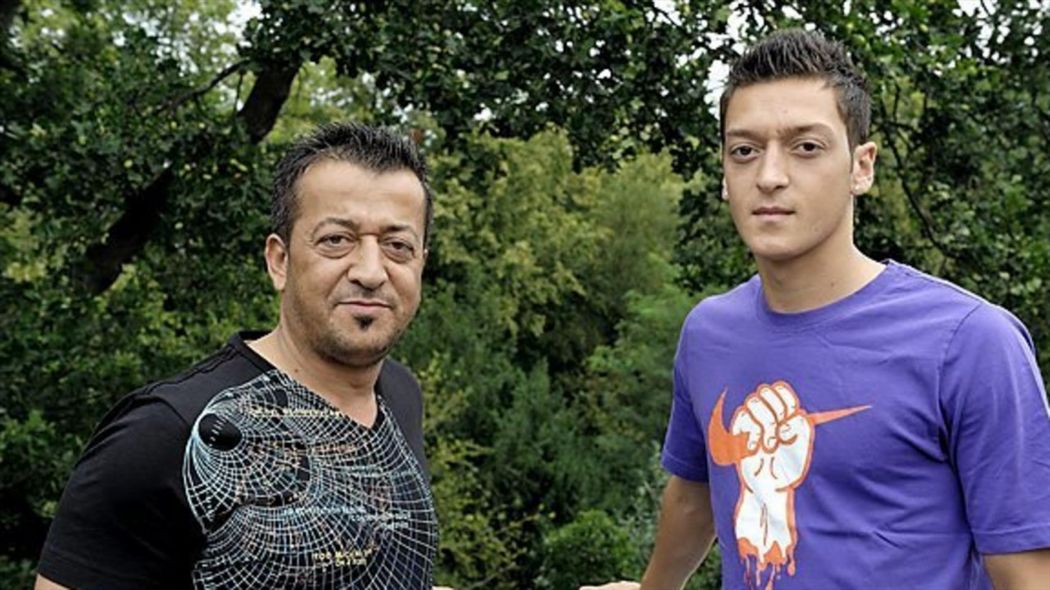
Another AfD politician, Wiebke Muhsal, tweeted on Sunday: “That took a long time. Ozil complains about disrespect, (but) I have not been able to recognise a commitment to Germany, nor respect for identification symbols like the German national hymn from him”.
Likewise, some of the German media, as hypocritically sensitive to criticism as their British counterparts, relished in the opportunity to put the boot in further following Ozil’s resignation comments.
Frankfurter Allgemeine argued Ozil’s resignation has left behind a “pile of shards”, adding his “sweeping blow” will immerse the German FA in crisis.
“In many ways, Ozil has overshot the target,” the daily said, describing Ozil’s attacks on the media as “absurd” and “outrageous”.
The tabloid Bild largely focused its efforts on ridiculing his ‘whining’ and any attempts to justify the photograph in his “yammer Facebook post” while Die Welt decided to go down the more dangerous (and predictably blinkered) route of adding a hint of threat to its assertion that the commitment in wearing a German football shirt means “more than a good game”.
“National players are role models, especially for young people with migration background,” it said.
“Germany has to formulate its expectations clearly, and every athlete wandering between cultures has to decide whether he can or wants to do that. Those who accept the German passport and put on the national jersey must know what that means for them. The Ozil case made that clear,” the paper added, poking the hornet’s nest with gay abandon.
Naturally the DFB went into damage limitation mode, not so subtly putting the blame back on the player; “We concede self-critically that the DFB has also made a contribution to dealing with the topic, and it is regrettable that Mesut Ozil felt that he had not been sufficiently protected as a target of racist slogans against his person.
“But it was important that Mesut Ozil gave answers to this photo, regardless of the tournament’s sporting outcome in Russia. In the DFB, we win and lose together, all as a team.”
It’s unlikely the domestic response will make Ozil feel anything other than vindicated in his decision. Unsurprisingly, he has received more public support from those outside Germany, including sportspeople, football writers, anti-discrimination groups and even the writer Paulo Coelho, who wrote simply; “Regardless what they say you were, is, and will always be a winner, Ozil.”
Only now, with his international retirement confirmed, and with the vitriol spilling out from certain quarters, have any official channels deemed to offer him consolation or support.
A spokeswoman for Chancellor Angela Merkel said on Monday that the majority of the roughly 3 million people with Turkish roots who live in Germany are well integrated and stressed that people with migrant backgrounds were welcome in Germany and added that the German chancellor valued Ozil, a great soccer player who had done a lot for the national team. Too bland, too little and too late.
Some senior politicians tried to distance the relevance of Ozil’s experience in a combination of attempting to diffuse the situation and the political equivalent of burying their head in the sand regarding the wider issues. The German Minister for Foreign Affairs, Heiko Maas, told Sky Germany: “I don’t think the case of a millionaire who works and lives in England provides the best reference point for the integration ability of Germany.”.
Thankfully he did go on to attempt to add a little perspective: “The true problems were on the pitch. Germany was eliminated so early and that did not have a lot to do with the picture that Ozil took with Erdogan. I think everybody should pause for a moment. I don’t see many people in this case who behaved well”, but again, this is a case of worrying about the stable door long after equine departure.
Even other current government officials have been unwilling to muster comforting words unless heavily offset with criticism.
“With all respect for the family roots, national players must be ready to accept criticism when they allow themselves to be used for election campaigning,” tweeted the German government’s integration commissioner Annette Widmann-Mauz
In Turkey, various government ministers are trying to make hay out of the situation, including suggesting that Ozil’s decision “has scored the most beautiful goal against the virus of fascism”, a statement clearly aimed at reinforcing the negative caricature of Germany, whilst distracting at some fairly proto-fascist policies at home.
The footballing world, and beyond, should be concerned. Some in Germany are;
“It is a warning sign when a big German footballer like @MesutOzil1088 no longer feels wanted in his country because of #racism and does not feel represented by #DFB,” German Justice Minister Katarina Barley tweeted.
Berlin Commissioner for Integration and Migration Andreas Germershausen told DW (in an excellent and wide-ranging interview that I urge all to read – https://www.dw.com/en/we-are-scapegoating-mesut-%C3%B6zil-says-berlin-integration-chief/a-44797286 ) that the star leaving Germany’s national team due to ‘racism and disrespect’ points to a frightening trend in German society.
“Most impressive to me was the sentence: When you’re successful, you’re seen as a German. When you’re not successful, you’re seen as an immigrant. So apparently, it’s not so secure to belong to us, the Germans. I think that is the question that Mr. Özil is posing to us and I think we need to react to.”
He continued; “In 2010 and 2014, Mr. Özil was one of the prime examples of successful integration, and it frightens me how quickly such a fundamental thing has eroded.”
Perhaps the most dramatic reaction came in a comment piece in influential weekly Die Zeit following Ozil’s statement: “In Özil, we are also losing faith in a progressive society.” The piece continued: “His withdrawal is a fatal symbol in a time and a country in which right-wing parties are getting ever louder and people on town squares call for refugees to drown in the sea.”
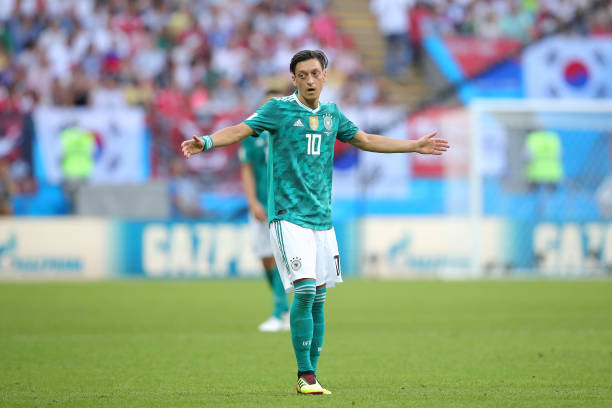
Mesut Ozil’s international retirement is a reminder of how deeply ingrained racism remains under the surface of expected behaviour, even in a country such as Germany, so haunted by the excesses of its past. It also is a very clear barometer of how much more keenly the fear of multiculturalism is being fuelled across a whole host of countries in recent years. After all, no one in Germany seemed to care about any previous photos of Mesut Ozil with Erdogan in years gone past, and in 2010, the young, multicultural German team, was a source of immense pride back home.
I’m not going to wade in on whether anti-multiculturalism is automatically racism, beyond saying that people on the political right like to confuse the two to their own advantage, but certainly the toxicity of this situation has been largely down to anti-multiculturalism sentiment.
The key thing is that Ozil feels like he is only accepted by some (and importantly this includes some of those he is working for) when he is successful. When he isn’t, he is forced back into the status of the outsider, the immigrant, the other.
I suspect a lot of second and third generation immigrant populations can relate to this the world over. National acceptance and integration are dangled as a carrot but are all too easily whisked away again by a paternalistic approach that demands compliance. To retain any of one’s ‘other’ culture, or to feel in anyway tugged in different directions is all too often characterised as ‘disloyal’ or as a threat of something more sinister.
One merely need to ask Swiss stalwarts Granit Xhaka and Xherdan Shaqiri about the comments made about multi-heritage Swiss footballers by powerful figures within their own federation following their ‘Albanian Eagles’ celebrations against Serbia, celebrating their Kosovan roots. The under-reporting of the provocative statements that came from the Serbian camp before the game is indicative of how these incidents are covered by a pan-European media dominated by an emboldened right wing.
Elsewhere, Belgian powerhouse Romelu Lukaku has pointed out that his Congolese descent is much more readily mentioned after a poor performance.
Even in France, fresh from the glory of winning that second star for the national team shirt, complaints highlighted the African origins of many of the squad, despite a unified group of players who feel proudly and overtly French. Indeed, Benjamin Mendy made a point of responding to tweets listing the national flags of each player’s family origins, ‘fixing’ them by replacing each flag with the French Tricolore.
Of course, to suggest that the focusing on non-domestic heritage is solely the preserve of the majority to judge minorities is to over-simplify a much more nuanced issue. As Ozil said about himself, he has two hearts; one German, one Turkish.
Looking at the French example, when South African comedian Trevor Noah described Les Blues’ victory as “Africa won the World Cup”, French ambassador to the US, Gerard Araud responded: “France is indeed a cosmopolitan country, but every citizen is part of the French identity and together they belong to the nation of France,”. Noah responded saying both African and French identities should be celebrated.
In the case of Ozil, there is of course the issue of religion as well as ethnicity, which makes it more complicated to unpick. Were he a ‘good’ Christian (or even atheist) he would probably be treated with less antipathy, but as a Muslim of Turkish origin, he undoubtedly is a bigger target, particularly given the targeting of Germany in homegrown terror attacks.
When in 2014, Jerome Boateng came under verbal attack from one right-wing politician, who said he wouldn’t want the Bayern Munich defender as his neighbour, that was emphatically drowned out by responses from the public. Four years later, the Ozil issue just dragged on. It is hard not to think the specifics of his ‘other’ nationality and faith were as significant in this situation as the advance of the far right in the intervening period.
Largely, the broader circumstances around Ozil’s personal experience and the words he chose reflect those of another German who was forced to deal with a politically uncomfortable dual identity.
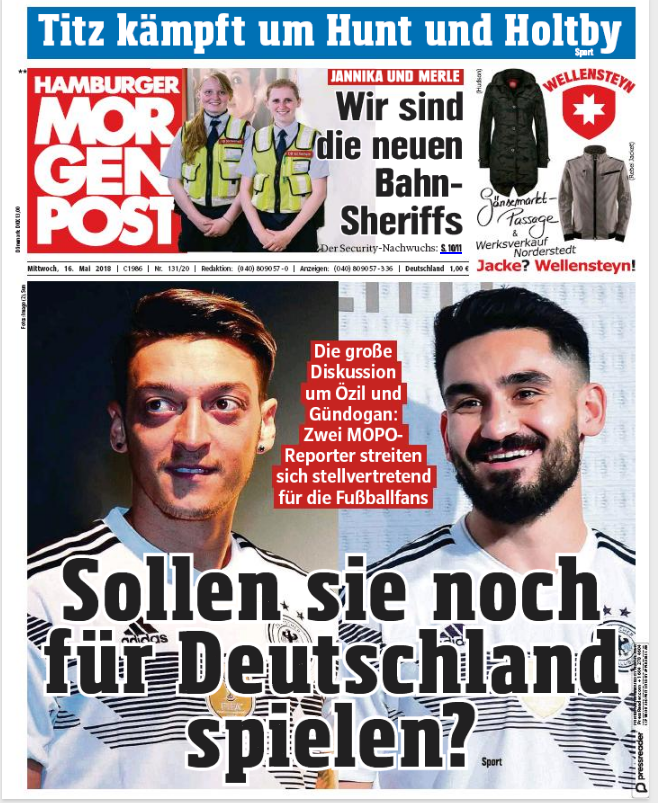
In Paris in 1922, Albert Einstein said: “If my theory of relativity is proven successful, Germany will claim me as a German and France will declare that I am a citizen of the world. Should my theory prove untrue, France will say that I am a German and Germany will declare that I am a Jew.”
As Einstein implied, his experience was both specific and global. It is very easy for us in England to feel smug about the lack of discrimination towards our players internally, but one only has to look at the tabloid press and Sky Sports coverage of anything to do with Raheem Sterling to see that we have our own issues in the UK (as if domestic politics wasn’t a clue). Thankfully a positive World Cup for England on the back of a fantastic season for Sterling limited the negative impact of such coverage. Yes, overall, we in the UK seem to have a more comfortable relationship with our dual-heritage players, but is this partly because we don’t have any at present with non-commonwealth or ex-commonwealth origins? Can we say with certainty that we would be more tolerant as a nation towards a comparative example to Mesut Ozil?
Of course, to many, all over Europe and the USA, immigrants and their families are ‘guests’ who have outstayed their welcome. It’s fine letting them in to work if we need a workforce, whether skilled or menial. But ‘they’ should go home before they infect our countries with their foreign blood, ideas and religions.
Trying to attribute the reaction to Ozil purely to this backward, hypocritical and self-defeating way of thinking is clearly an oversimplification, given the political elements. But, as he points out very clearly in his statement, having photo opps with power hungry de facto dictators seems fine as long as both are white and nominally Christian. This is clearly an over-simplification on his part, given the differing circumstances, but the point of difference is still relevant. As he also points out, players of non-Turkish and non-Islamic dual heritage in Germany seem to seldom have their family bloodlines discussed with such scrutiny.
All it has taken is a couple of photos to expose with crystal clarity a deeply unpleasant xenophobic undertone to significant parts of modern German society. As with much of ‘The West’, these archaic attitudes have crept out of the shadows and into a long-lost position of partial respectability. Perhaps in the same way as time passing has made some in the UK forget why the EU was brought into being, some in Germany may have felt able to find more ambiguous feelings towards the greatest stain on that country’s history. Certainly, there is an increase in the numbers of people who feel less inclined to the self-examination of the post-war era.
If anyone feels that I’m over-egging the pudding on this one, a study released July 23 by the German University of Mannheim, proved that German’s of Turkish origin are victims of widespread racial discrimination before they even make it into the workplace. The study saw 204 teaching students aged 23 grade two identical papers, one half of the group had a paper written by “Max” and the other a paper written by “Murat.” The teaching students derived different grades, with the supposedly Turkish students receiving poorer marks.
Capturing the feeling of many German dual-nationals, Sawsan Chebli, a state secretary of Palestinian descent in the Berlin state parliament, tweeted: “Özil’s departure is a confession of failure for our country. Will we ever belong? My doubts are growing by the day. Am I allowed to say that as a state secretary? It is, at any rate, what I feel. And it hurts.”
Back at the DFB, it isn’t too strong to suggest that Bierhoff and in particular Grindel have put their own positions in jeopardy through their spectacular mismanagement of the situation. One positive of Mesut Ozil’s international retirement is that the evisceration he gave Grindel may result in the former politician’s long-held anti-multicultural and anti-Islamic view’s costing him his position at the head of an organisation so utterly reliant on its integrated second-generation immigrant population for its remaining at the top of world football.
Ex-Liverpool and Bayern man Dietmar Hamann, while not exonerating Ozil, made his feelings clear on Monday.
“What happened to this guy leaves a nasty taste in my mouth. Of course, his behaviour was not clever by taking this picture just before the World Cup. But the DFB should have taken care of this”, said Hamann who won 59 caps for Germany.
“It is a fact that the DFB should have behaved differently after the picture was taken. This problem should have been solved before the World Cup. Bad work from the DFB. And weak leadership. They just let the problem grow. That’s why everybody started attacking Ozil.”
Cem Özdemir, the former head of the Greens party and the most prominent politician of Turkish background, (as well as a vocal critic of the Turkish President) highlighted the DFB President’s vulnerability.
“It will be very hard for Grindel after this,” he told Deutschlandfunk radio. “He doesn’t reflect the breadth of football in Germany and so it will be hard for German Turks, or indeed German Croats, to feel that the DFB is theirs.”
Others went further.
Gokay Sofuoglu, leader of the Turkish community in Germany, demanded Grindel’s resignation, stating: “Diversity in the national team was a great showcase project that is now at risk of failing due to incompetent leaders.”
The association’s former press officer Harald Stenger simply described Grindel as “the FA’s worst president in the last 50 years”.
Some fear that there could be an impact for the DFB at a lower level, as Peter Ahrens from German magazine Der Spiegel pointed out earlier this month, describing the situation as;
“A signal that will also register with academy players from migrant families: do the DFB really want us to play for Germany? Whether talented players in the future will choose Germany without hesitation, will probably be discussed differently after the experience in how the Ozil case was dealt with.”
Echoing the sentiments of the excellent Raphael Honigstein, the sports journalist Martin Schneider summed the situation up succinctly in the influential Süddeutsche Zeitung daily that, more than the squad’s early exit from the tournament, “the end of Mesut Ozil in the German national team is the real defeat of the summer.”
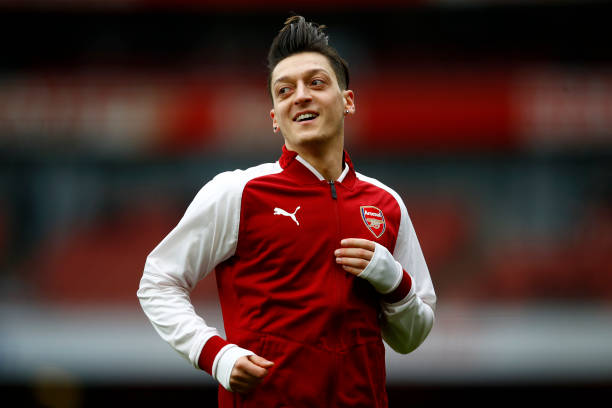
One must hope that for Ozil himself, confronting this situation and expressing his thoughts so clearly has been cathartic rather than traumatic. Given his childhood experiences, the internal politics in Germany at present, and the increasing wave of criticism in recent years, some of the feelings of discrimination he expressed have probably been building over an extended period at the back of his mind.
Essentially, whether one agrees with the wording, his take on the now infamous photograph, or indeed his ultimate decision, he should be applauded for standing so strongly on principle. Yes, it may be driven by personal hurt and some wounded pride, but it clearly would have been much easier for him to do as others have done before, and keep his head down and his mouth shut, and wait for the storm to blow over. Equally, he could have issued a fudged and corporate speak apology and been welcomed back into the fold.
Instead, he issued an intelligent statement that was breathtaking in its scope, significance and bravery. It was utterly unequivocal, knowing that doing so would bring him criticism, scrutiny and abuse alongside any positive attention. He also did so in English, so that his stance could be read and digested by the largest possible global audience, and via his social media accounts that already have far greater global reach than most of his critics (23 million followers on Twitter alone), again knowing that it would bring a lot of ‘heat’ on him.
As Rio Ferdinand Tweeted: “Massive Respect”.
As primarily fans of Arsenal Football Club rather than the German national team, our concern must be for the well-being of the player, so he can flourish amidst all the changes taking place in North London.
We all know Ozil is a player who divides opinion among commentators, pundits and Arsenal fans themselves, but very few doubt his capacity to make this team better than it is without him, even if that is not as universal an occurrence as we’d like. The thing that gives me a sense of comfort is that no Arsenal fan I’ve met, listened to or read the words of has ever equated any of his failings with his nationality, his ancestry or his faith, and hopefully this can be of comfort to him too. Today, Arsenal’s new head coach put it simply; “All of us want to help Mesut feel like it is his home here with us, like a family…”
Having a player who feels slighted elsewhere is no bad thing for motivating him to reach new heights, and it is incumbent on us, as Arsenal fans to make sure Mesut Ozil feels the appreciation, acceptance and support as part of our great club that he no longer feels when representing the nation of his birth and upbringing. The fear is that he could continue to find the situation distracting or that it impacts on his longer-term career motivation, but I think the almost universal support he is receiving from the Arsenal fan base on this issue will help a lot. And of course, if he plays well he’ll be showing the DFB and the German media exactly what they’re missing.
Arsenal has a history of being a club of comparable tolerance, open mindedness and decency, despite its maddening ‘old school tie’ traditionalism, right back to its embracing of overseas players and new innovations between the two World Wars, through its relatively early and comparatively painless integration of black players and fans, and its embracing of a Frenchman as technical, tactical and ultimately spiritual leader. We are also historically the biggest club in what is probably the most multi-cultural city in the world and must remain a place of welcome and acceptance, both on the pitch and in the stands.
As Arsenal’s official twitter account posted in a low-key message of support the morning after Ozil’s statements were released;
“Our diversity is a big part of why we are such a special club”, a sentiment that I think we can all get behind. One that is more important than ever in a world where politicians are increasingly willing to stir up people’s basest fears and prejudices to secure power through division.
If there is anything that any country can take from this whole sorry affair, it is that views that were not so long ago seen as extreme are now firmly part of the mainstream debate, and a conscious desire to promote tolerance and inclusivity are vital to stave off the dark days we had thought were behind us forever.
As the aforementioned Cem Özdemir simply put it; “Strength lies in diversity, not homogeneity. That’s how we won the World Cup in 2014, and France did this year.”
As the long-standing motto of our great club says; “Victoria Concordia Crescit” – “Victory Grows Through Harmony.

